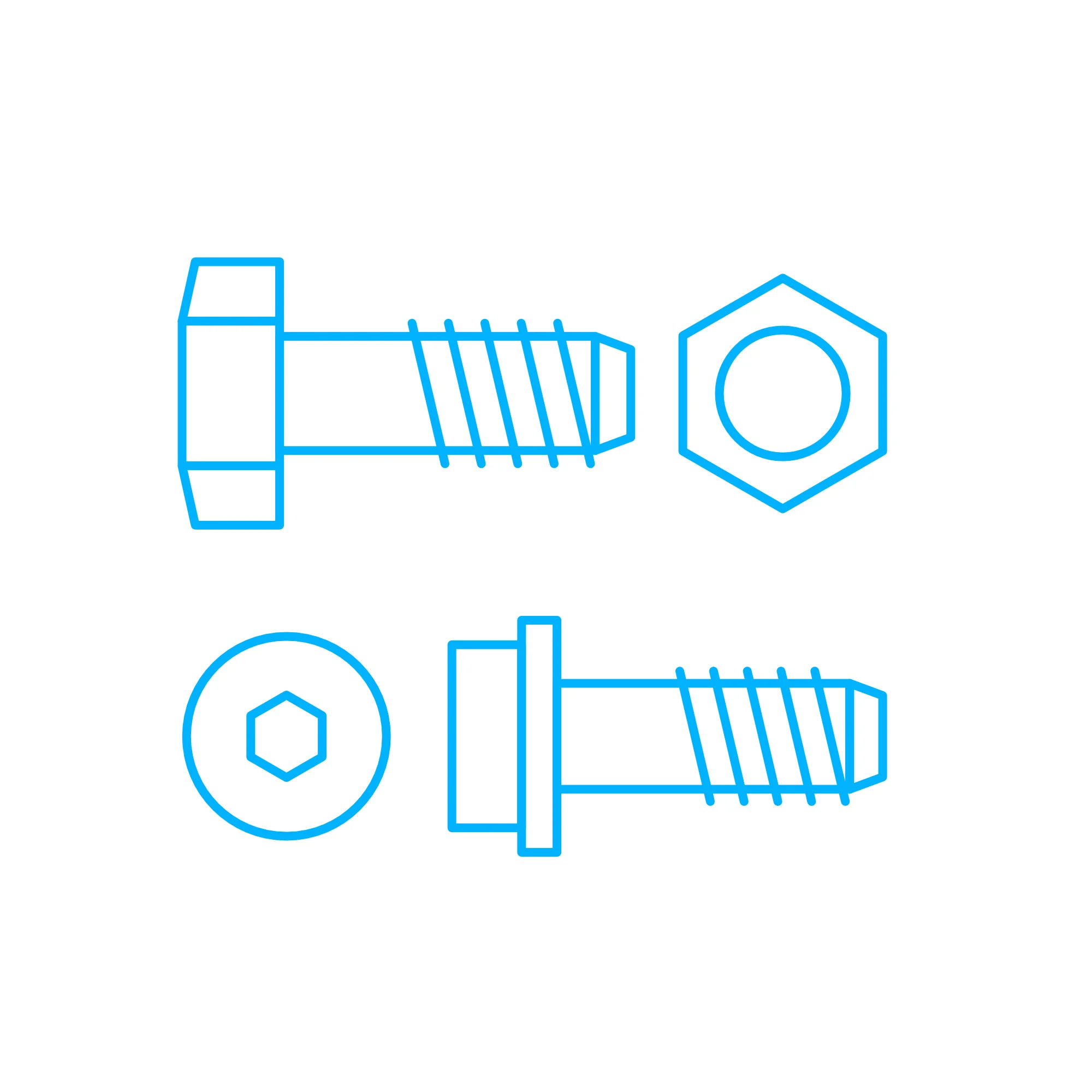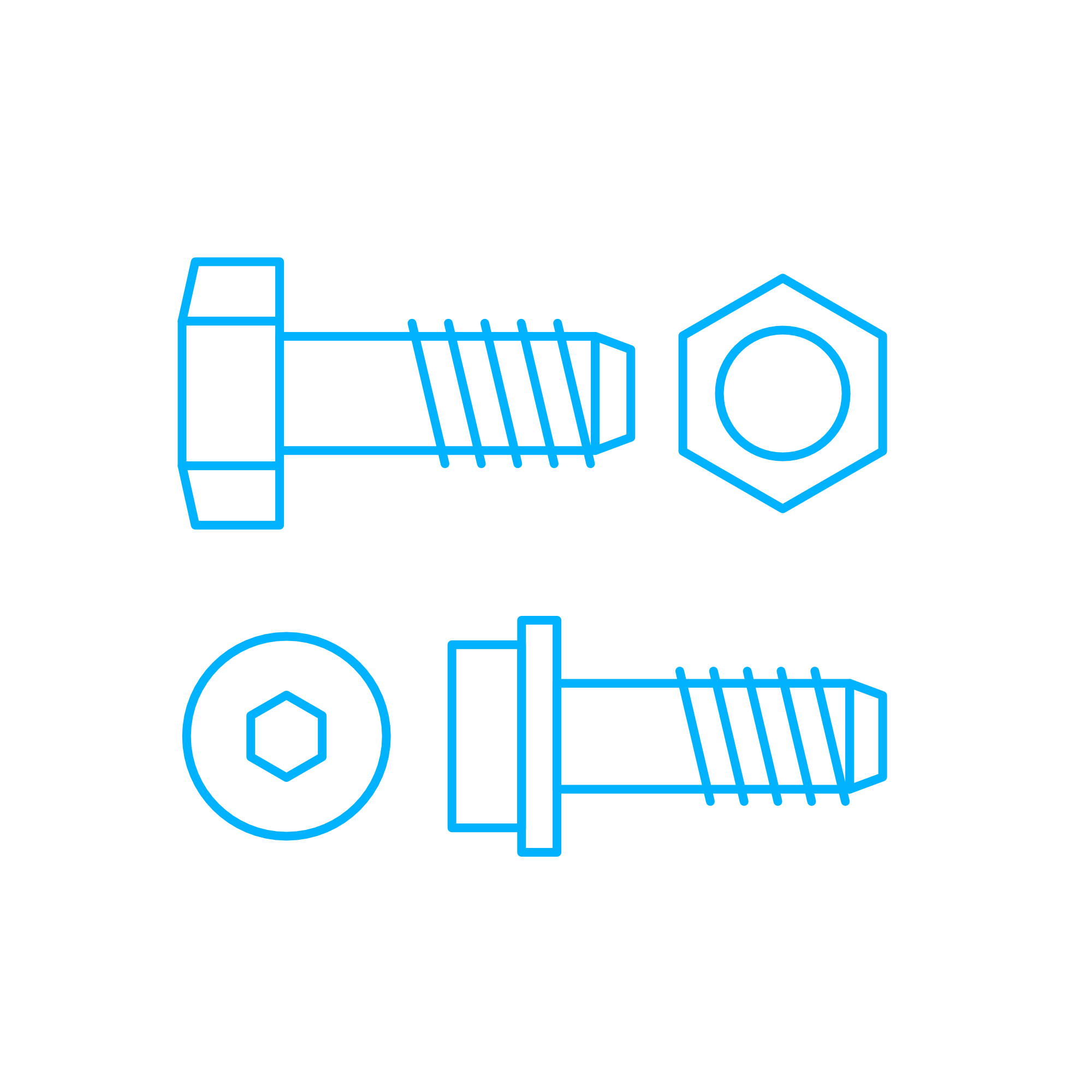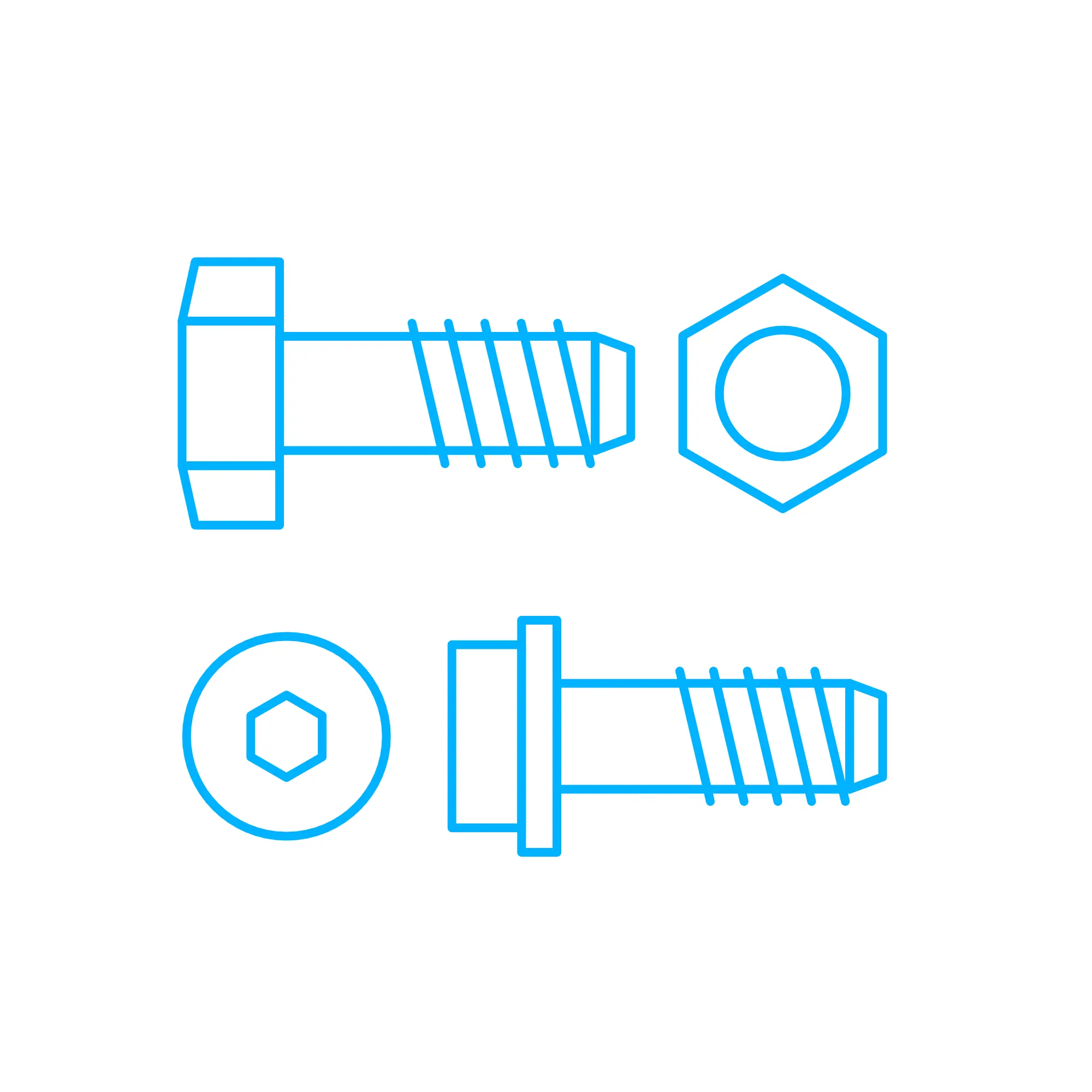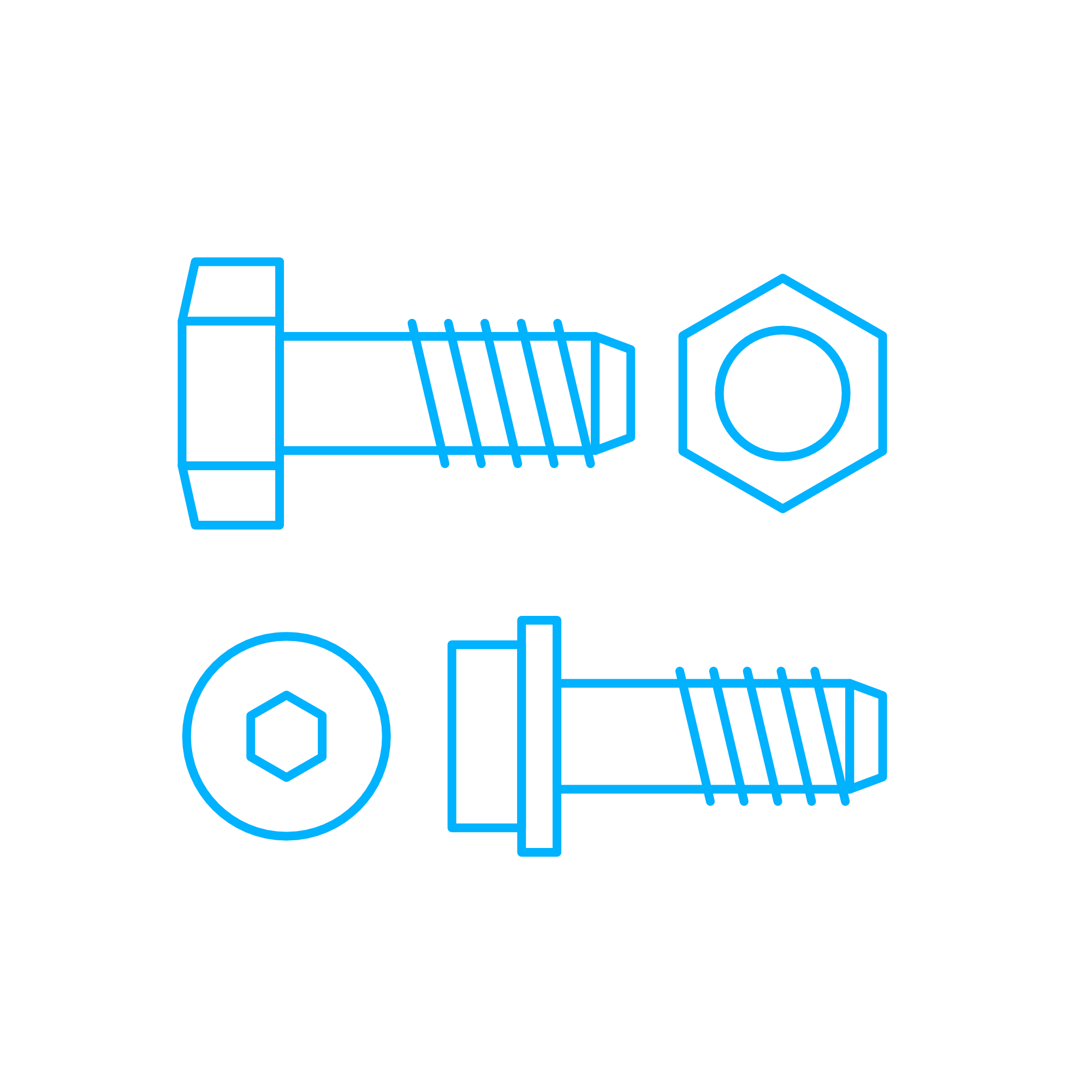ROUND-HEAD SCREW Screws for Marine, Diesel and Gas Engines
Screws are precision fastening components designed to clamp engine parts together safely and repeatably. In propulsion and power-generation environments, they secure covers and guards, align housings, seal flanges, fix instrumentation, and carry dynamic loads across temperature cycles and vibration. Within this category, the ROUND-HEAD SCREW stands out for its low-profile head geometry and broad bearing surface—ideal where snagging must be avoided and aesthetics or access are important. Whether in a marine engine, a high-speed diesel engine, or a stationary gas unit, correctly specified screws make the difference between stable performance and avoidable downtime.
Technical Function of Screws and the ROUND-HEAD SCREW in Engine Assemblies
The technical purpose of a screw is to generate controlled clamping force (preload) between parts. When tightened to the correct torque or via torque‑angle strategy, the shank is elastically stretched and clamps the joint members with a predictable force. This preload prevents micro-movement at interfaces, maintains gasket compression on sealing faces, keeps rotating components aligned, and distributes stresses to avoid fatigue. In harsh engine environments—hot, oily, saline (marine)—screws must maintain this preload despite vibration, thermal expansion, and corrosion challenges.
In locations where space is limited or where maintenance personnel work around exposed fasteners, a ROUND-HEAD SCREW provides a smooth, rounded profile that reduces snag risks for cables and hands. The larger bearing area under the head helps spread the load on softer covers or painted shields, while the shape allows neat seating under washers or directly on machined faces. In marine engine applications, the ROUND-HEAD SCREW paired with stainless or coated materials resists corrosion while preserving removal torque. In a diesel engine, property class 8.8, 10.9, or 12.9 variants deliver the tensile strength needed to retain brackets, guards, and accessory components under pulsating loads. As OEM parts, ROUND-HEAD SCREW selections follow exact thread pitch, head geometry, and surface treatment specifications so that calculated torque leads to the intended clamp force every time.
How a ROUND-HEAD SCREW Supports Engine Integrity
Correct thread engagement—typically 1.0–1.5 times the nominal diameter in steel—ensures the threads in the mating component are stronger than the screw shank. Lubrication condition (oiled, dry, coated) and friction coefficients are accounted for in torque values. Anti‑vibration security may include prevailing-torque nuts, thread-locking compounds, tab washers, or wire-locking where mandated. The ROUND-HEAD SCREW also suits cover plates and inspection hatches, where frequent removal requires robust head geometry that resists rounding and maintains tool fit after many service cycles.
Key characteristics and advantages of Screws in engines
· High tensile strength classes (e.g., 8.8/10.9/12.9) for reliable preload.
· Precise thread tolerance for repeatable torque‑to‑tension behavior.
· Engineered head geometry; ROUND-HEAD SCREW offers low-profile safety.
· Corrosion protection: stainless, zinc‑nickel, phosphate, or organic coatings.
· Heat treatment and material traceability for consistent performance.
· Compatibility with torque‑angle tightening for critical joints.
· Designed for vibration resistance with approved locking methods.
· Available to OEM specifications for marine engine and diesel engine use.
Why Screws Are Critical for Reliability and Service Life
Sustained engine performance depends on joints that stay tight. If screws lose preload due to thermal cycling, improper torque, or corrosion, contact surfaces can fret and wear; gaskets may relax, causing oil, fuel, or coolant leaks; housings can shift, misaligning rotating assemblies; brackets can vibrate, leading to sensor faults or belt mis-tracking. Conversely, over‑tightening can yield the screw or crush gasket materials, degrading sealing and life. Selecting the correct screw material, property class, and coating, then applying validated torque or torque‑angle procedures, keeps assemblies secure over long running hours.
Maintenance regimes should include visual inspection for corrosion and head damage, verification of torque on critical joints, replacement of deformed or stretched screws, and adherence to one‑time‑use policies where specified. Using the right ROUND-HEAD SCREW for covers and access points reduces tool slip and head damage during repeated servicing, which directly supports safety and uptime.
Advantages of OEM Spare Parts Suitable for Screws and ROUND-HEAD SCREW Applications
Choosing OEM spare parts suitable for Screws ensures that every dimensional and metallurgical attribute matches the engine builder’s specification. That precision matters for torque‑to‑tension correlation, load distribution, and sealing integrity. Material certificates, controlled heat treatment, and consistent coatings deliver predictable friction values so the same torque yields the same preload across the fleet.
Budget and lifecycle considerations also favor OEM spare parts: correct fit avoids rework, reduces installation time, and lowers the risk of secondary damage from joint failures. Traceable batches and clear part numbering simplify procurement for large fleets and drive standardization across marine engine and diesel engine platforms. In short, OEM parts minimize uncertainty and help you maintain consistent performance across vessels, plants, and depots.
ROUND-HEAD SCREW OEM parts: Performance, Reliability, and Cost Control
With a ROUND-HEAD SCREW sourced as OEM parts, head geometry, drive recess, hardness, and coating thickness align with the tightening data in the service manual. That alignment translates into reliable clamp loads, fewer call-backs, and stable service intervals—key outcomes for purchasers and technical decision-makers focused on total cost of ownership.
MOPA as Your Partner for OEM Screws and ROUND-HEAD SCREW Supply
MOPA is an experienced and reliable partner for OEM spare parts suitable for Screws, including the ROUND-HEAD SCREW across diesel and gas engine portfolios. We prioritize speed with responsive sourcing and efficient logistics, quality through vetted suppliers and documentation, and security via product traceability and careful handling from warehouse to quay. Our team supports identification by engine model and part number, aligns deliveries with planned dockings or outages, and helps standardize screw specifications across your fleet to reduce complexity. Whether you need corrosion‑resistant ROUND-HEAD SCREW options for a marine engine or high‑strength variants for a land‑based diesel engine, MOPA delivers the parts you need—on time and with technical confidence.
Conclusion: The Value of Screws and ROUND-HEAD SCREW in Engines
Screws are fundamental to engine integrity, and the ROUND-HEAD SCREW brings specific benefits where safe handling, clean design, and repeatable tightening are vital. By choosing OEM spare parts suitable for Screws, you secure consistent performance, long service life, and controlled costs across marine, diesel, and gas engine applications.
Partnering with MOPA ensures fast, reliable access to OEM parts and technical support that keeps your equipment running to specification with minimal downtime.




